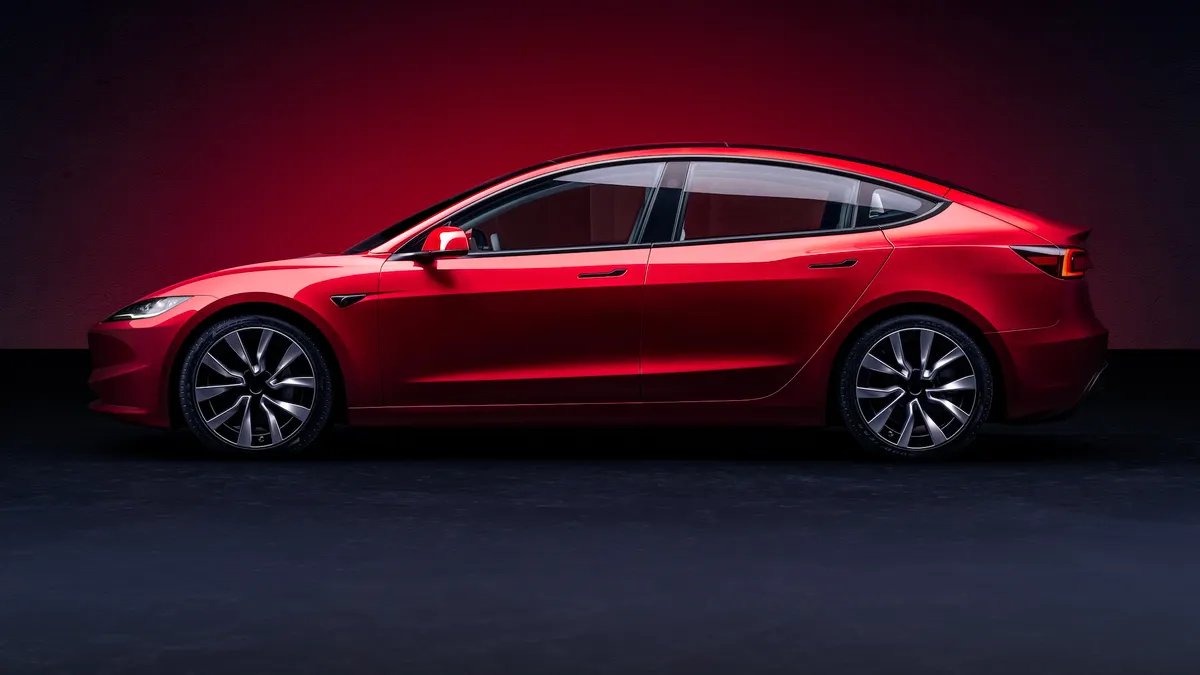Editor's note: This story is part of the WardsAuto digital archive, which may include content that was first published in print, or in different web layouts.
BRUSSELS – Governments and major auto companies worldwide are vying to be champions of sustainable transport, declaring ambitious goals for a switch to electric and zero-emission vehicles.
But environmentalists say “green-botching,” where governments and companies are implementing environmental measures so badly that they undermine their green goals, is becoming a real problem.
The U.K. is a case in point. The government’s target of all new vehicles being ZEVs (zero-emission vehicles) by 2035 and having 300,000 public chargers installed by 2030 is being undermined by policy implementation delays, claims Ralph Palmer, electric vehicle and fleets officer at Transport & Environment (T&E), a non-governmental organization promoting sustainable transport in Europe.
Palmer says the government was “dithering” over secondary legislation and guidance, despite the idea of a ZEV mandate being first floated in July 2021 and selected as the preferred regulatory approach in 2022. Although these documents include ZEV targets with 2024 start dates (22% of all new vehicles sold that year), Palmer says the final consultation only ended May 24, rather than the expected fall 2022, “and we've not seen a response or any progress from the government yet.”
An Aug. 2 T&E statement criticized these delays, which, Palmer argues, risked £6 billion ($7.6 billion) in private investment going into the U.K. charging network. He cites an August letter from trade association UK Charge to British Prime Minister Rishi Sunak warning that the sector “now needs certainty in the form of a firm commitment to a strong ZEV mandate.”
The letter warns: “Watering down the original ambitions of the ZEV mandate will mean billions of pounds of investment, thousands of new and green jobs and the supply of secondhand EVs (electric vehicles) are put at risk.”
Giving this as an example of “green-botching,” Palmer says the auto and EV charger sectors need “a clear roadmap to provide investment certainty.” Should the 2030 target remain, these consultation delays will shrink the investment and infrastructure construction window, risking charger policy goals: “The longer government indecision continues, the greater the risk to the automotive, charging and battery industry investments.”
Asked for comment on these claims, a U.K. Department for Transport spokesperson says: “We remain committed to phasing out new petrol and diesel cars by 2030, which will not only lower emissions but also provide certainty to industry and put us ahead of our European counterparts.”
Failure to ensure access to public charging infrastructure is another common theme in automotive “green-botching.”
A 2022 University of California at Berkeley study found more than 25% of chargers in San Francisco (pictured, below) were either out of order or could not be used. Overall, 72.5% of the 657 EVSEs (electric vehicle service equipment) checked were functional, the cable was too short to reach the EV inlet for 4.9% and 22.7% were non-functioning – and a random 10% were rechecked eight days later with the same results. Causes were unresponsive or unavailable screens, payment system failures, charge initiation failures, network failures or broken connectors, the study noted.
A survey in the same study showed EV drivers experiencing broken plugs (9%), unexpected shutoff during charging (6%), charging station not functioning (22%), payment problems (18%) and the need to contact customer service via cell phone (53%).
“The level of system failure observed indicates a poor quality of electrical design, components or software, plus the need for EVSPs (EV service providers) to improve their identification of the EVSE functional status to trigger timely service,” it concluded.
Another claimed EV rollout policy mistake has been highlighted by the European Automobile Manufacturers’ Assn. (ACEA), criticizing a July proposal by the European Commission for a European Union end-of-life vehicles regulation, requiring at least 25% of plastic in new vehicles to be recycled and a quarter of that from recycled EVs. ACEA warns the proposal “could duplicate or complicate existing rules and industry best practices on sustainable design.”
While use of novel materials such as carbon fiber to reinforce plastic parts can reduce carbon footprint and energy consumption, ACEA points out they are challenging to recycle and can contaminate waste streams. The Commission (the EU executive) “has not sufficiently examined imbalances in the demand and supply of recycled materials and existing technology gaps before proposing these ambitious targets,” says ACEA Director General Sigrid de Vries.
Governments are not alone in being accused of “green-botching.” Lawsuits against Tesla allege the EV pioneer has exaggerated vehicle-range claims by ignoring that they can be halved in cold weather (pictured, below), undermining trust in the EV market.
Inflated driving ranges are false advertising, class-action attorneys Adam Edwards and Mitchell Breit, of Tennessee-based Milberg Coleman Bryson Phillips Grossman, claim in an August complaint filed in the U.S. District Court for the Northern District of California on behalf of three Californian Tesla owners, open for other Tesla owners to join.
They cite a Reuters investigation which concluded that Tesla “decided about a decade ago, for marketing purposes, to write algorithms for its range meter that would show drivers ‘rosy’ projections for the distance it could travel on a full battery.” Reuters concludes range “is among the most important factors in consumer decisions on which electric car to buy, or whether to buy one at all,” so declining confidence in such claims could damage the market.
South Korea’s Fair Trade Commission (FTC) has also taken issue with Tesla’s range claims, fining the automaker 2.85 billion won ($2.1 million) for alleged misleading advertisements in January.
The antitrust regulator ruled Tesla’s August 2019 ads suggesting its cars can “run at least” hundreds of kilometers were “an exaggeration” and “only possible under an average temperature and in downtown areas. Under other conditions, the distance is shorter.” The FTC said “the actual range fell up to 50.5% under colder temperatures.”
Tesla did not respond to Wards requests for comment.

















